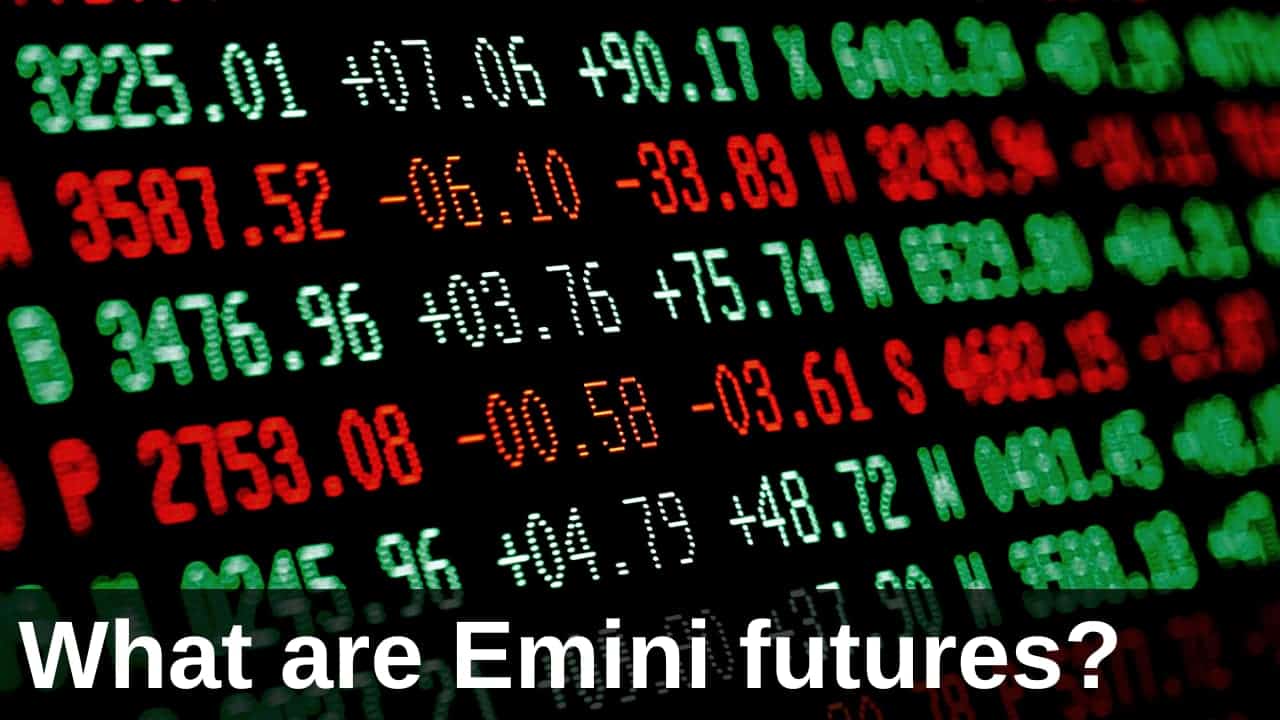Conventional wisdom sucks! Or why I don’t use tight, trailing or breakeven stops.
Exiting trades and the use of profit targets and stop losses is very controversial. I often get questions about why my stops are so wide and my profit targets so small. This email from Ron states the issue brilliantly:
Hi Barry, Do you have insights into the psychology (especially the fear) of Emini trading? Have studied my trades and notice the following behaviour:
1. When the trade goes my way, I tend to bring my stop in to break even (fear of turning into a losing trade). Often I get stopped out only to watch the trade produce 2-3 points if I had stayed in.
2. I tend to take profits early, in the first leg in my trade. I notice in your videos that you get your 4 points by allowing the trade to pullback, then reach your targets. That is nerve racking for me, again, I believe fear of turning the trade into a loser.
3. My stop is at 1 – 1.5 points, thinking that if the trade goes that far, it is not doing what I thought and I need to get out. There have been times when I have been glad but often I get stopped out only to see the trade move into winning territory.
Ron
Here’s my 2 cents on Exits and trading psychology. Please bear in mind that the numbers used apply to the Emini market.
Use the “Magic 4 Points” profit target as a default
The Emini tends to move in 8 to 10 point trend “legs”. If we’re lucky there are 2 to 3 of these a day – but from time to time we get no volatility and you’re better off not trading at all.
So if the average trend leg is 8 to 10 points – how much of this can you capture? The start of a trend leg will always have some chop, usually around 2 points. Then the end of a move will also have some chop as the market finds a bottom or a top – again, usually 2 points.
What we’re left with is 4 to 6 points of solid trend in the middle of a trend leg. And that’s what I’m trying to capture – the “Magic 4 Points”.
So for me, assuming I’ve entered well – not at an extreme but after the move starts to prove itself – the prudent thing to do is take profits after 4 points. That way I’ve exited while the trend is still moving and traders are chasing the trend, plus I’m not sitting through chop and trying to pick the extreme of the move.
The only exception to my 4 point profit target is on an “Icebreaker” trade. This is my first trade of the day and all I’m trying to get is 2 points. Psychologically it’s nice to be out with a solid 2 points, plus at the beginning of the day the market tends to be range bound and finding the support and resistance levels.
If you get a “Runner” use the “Pro Signal” exit
The highest risk-to-reward exit signal I’ve found is called the “Pro Signal”. The signal is made up of a Professional bar plus nearby Exhaustion volume pattern on the 1,500 tick bar chart.
This highlights an area of support or resistance where Professionals re-enter the market to take profits. Plus with Exhaustion volume the move has temporarily run out of sellers or buyers and so is ripe for a small reversal.
Reversals on the Emini tend to be 1 to 2 points and so rather than sit through this I like to be out, having taken my profits.
Normally, if I’ve entered well, my “Magic 4 Points” profit target is very close to this “Pro Signal” exit – and so I’m happy to be out. If I’ve missed a good entry then I’ll just exit at market as soon as I see the “Pro Signal” – and hope to get 2 to 3 points of profit.
Update September 2011 – “Pro Signal” exits
We’re seeing a lot more volatility in the Emini these days and “Pro Signal” exits are routinely showing 6 to 8 points of profit, when the entry is good.
Psychologically I like this exit. I’ve taken profits while the trend is in my favour. I don’t have to sit through a 1 to 2 point retracement. Plus I don’t have to agonize over where the trend move will eventually end. It’s the perfect place to exit a “Runner”.
If you have the patience for it (and the stomach to sit through the volatility) you could wait for “End of Trend” signals in the lower time frames or cycle support/resistance in the higher time frames. This video discusses 2 other options for exiting trades.
Give your trades “Room to Move” with a 4 point stop loss
One of the things that differentiates Professionals from Amateurs is the size of their stop.
Amateurs have been convinced that they can trade with minimum risk and only a 1 to 1.5 point stop. This assumes they can enter their trades perfectly and that the market immediately goes in their favour.
Both of these things are fantasy.
The Emini is a volatile market and the Professionals love to shake out the Amateurs. The stops are clustered in such obvious places it’s just plain fun gunning for them. Moves testing and exceeding recent pivot points by 1 point are common – pull up an Emini chart and see for yourself.
So what I do is use a 4 point stop and reduce the number of contracts I trade so that the damage to my account equity from a stopped out trade is minimal (2.5%).
This activity by the Professionals – testing pivot points and running stops – also makes using a Break Even stop a non-starter. Much better to get the trend direction right and just to wait for the “Magic 4 Points” profit target to be hit or the “Pro Signal” exit to show on a “Runner”.
Shane Brewer, back in the day, did some great statistical analysis explaining why a 4 point stop loss will keep you out of trouble. Basically, 95% of all retracements are 3.5 points or less in the Emini. (HT to Jason S. for the pointing me in the direction of this research.)
Avoid the “cute” stuff like Trailing and Breakeven Stops
Trailing stops sound fantastic – maximize your gains by trailing a stop and exit when the trend finishes. Trading books are filled with them: based on ATR or lowest low of last x bars.
Another real life versus “I read it in a book” clash.
If you exit on a trailing stop you’re forced to exit during a retracement – you’ll get slippage and at the end of the day you’ll make almost no more than if you’d exited on the “Pro Signal” or the “Magic 4 Points” profit target.
Yes, occasionally the market melts down or melts up – and a trailing stop results in a 10 point monster trade. But, honestly, day-to-day you’re much better off having a profit target and exiting as the trend is moving in your favour – no slippage, less time in the market, less risk and psychologically easier to trade.
Breakeven stops are another gimmick, in my mind. The Emini is volatile and the market can easily go your way, come back to your entry, put you under pressure and then go in your favour. A breakeven stop would have taken you out and you’d have missed the trade.
They’re just not worth it – and here’s some great system analysis that backs up the point.
Summary
This article should have convinced you to keep it simple. Here’s what works for me:
- 4 point default profit target. For me, 4 points is a bit of a “magic” number on the Emini. It’s the easiest part of a typical 8-10 point trend run in the Emini to capture.
- “Pro Signal” exit on a “Runner”. If the trade starts to “run” it will often run out of steam with an Exhaustion pattern I call the “Pro Signal” exit, usually on a “left shoulder”.
- 4 point stop loss. This gives the trade “room to move” and a risk-to-reward ratio of 1-to-1. And don’t forget the “Gut” exit – if it doesn’t feel right, get out and watch.
- Trailing and breakeven stops are not for me. I get dozens of emails about this one – it’s just a personal choice. If you’re into trailing or breakeven stops, then please don’t let me dissuade you.
Good luck with your Emini trading and remember “the trend is your friend” – get the trend direction right and your profit target will get hit, eventually.
Reader comments on ‘Exiting Trades’
Best video ever. Great Job.
James N.
This video is platinum. Thank you.
Byron
Great video. Thanks for sharing these little jewels of knowledge!
Jim
Thank you for your video on exiting trades. It helped me more than any other video. I was always using just 3 ticks as a stop now I’m going to try and use your technique and all your indicators. Job well done! Thank you.
Howard H.
Thanks for taking the time to put this together, extremely helpful.
Scott B.
Last video on day trader psychology was nothing short of fantastic. It is probably one of the best no-BS day trading vids I have seen, and I have seen a lot. I especially liked you comparing your profit target method to the ATR trailing stop, which is written and favored everywhere today.
Damian
SIMPLE! A Great video. Thanks.
David
Great video on psychology aspect and stops. Thx
Tom
I wanted to tell you how much I appreciated your Trading Psychology video. It had so much useful information. I think that was my favorite of your daily videos so far. Thanks for the work you put into these.
Brian W.
In all of my ES strategy backtesting using a variety of systems, I have found 4-points to be the optimal single contract, session profit target, for maximum Winning % trades and highest profit factor.
Tony C.


